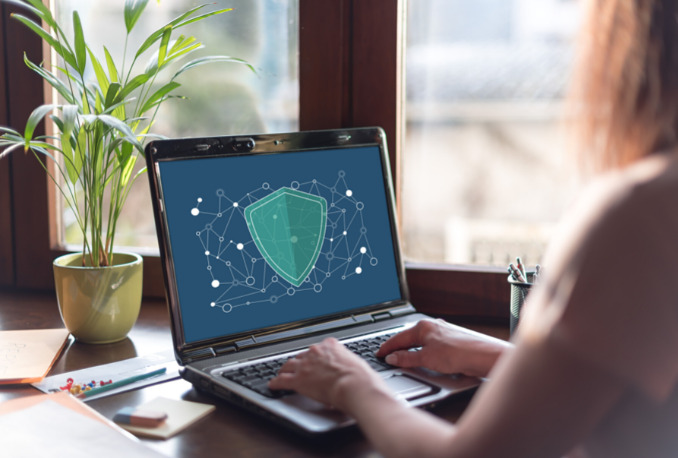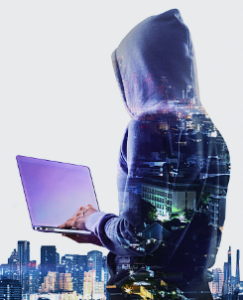Small Business Cyber Security
When most people think of cyberattacks, they imagine government-funded agencies stealing private data from large corporations or websites. However, as the Australian Cyber Security Centre points out, 99.8% of businesses in Australia are small to medium businesses. These are often the victims of cybercrime as they don’t have the resources that large corporations have to protect themselves against increasingly sophisticated hackers. If you run your own small or medium-sized business, it’s essential to learn how cyberattacks work and the best ways to protect yourself from them to keep your company safe from harm.
Protecting Your Business Against Cyber Crime
With the rise of mobile computing and cloud storage, businesses now have more information at their fingertips than ever. However, this also means that your business has more to lose if it falls victim to a cyber security incident. In today’s technology-driven world, small businesses need to be aware of the dangers posed by cyberattacks and how they can best protect themselves against them.
Four in ten (38%) Australian businesses reported cyberattacks in 2021, and the results can be costly to your finances and the destruction of your business. Cybercriminals do not all have the same motivations, so it’s a mistake to assume that attacks are all about extorting money. Some are politically motivated, and others do not seem to have any motives whatsoever. However, they do have something common: to cause harm or disruption.
The Impact of Cyberattacks on your Business
A cyberattack can lead to:
- loss of money, information and reputation
- disruption to business, damage to other companies you do business with, and nuisance to employees and customers if their sensitive personal information is compromised
Cyberattacks can put your business in peril, so why risk not having every measure in place to protect it? IT Services Brisbane are expert in cyber security. We offer managed IT services that take care of your IT systems, assessing the dangers posed to your company and providing you with the necessary support and solutions to keep your systems safe and your business running in the event of a cyberattack.
Malicious Software
One of the commonest threats in terms of cyber security problems your business may encounter includes malicious software, such as:
 Malware
Malware
Malware is a broad term that covers how cybercriminals try to gain access to devices, networks, websites, and finally, your data. There are many types of malware, including:
- Viruses, which are contagious and travel through the different connected devices and
- Software that runs in the background of your device and records your internet activity.
- Keyloggers that gather keystrokes to steal passwords and other data.
- Worms replicating like viruses but with the goal of destroying data
- Computer malware, otherwise known as Trojans, appear to be genuine programs, so they can give an intruder access to modify, copy, and delete data and provide a backdoor network access. The following subcategories of Trojans exist: backdoor Trojans that enable remote control over the infected device, rootkits that can help disguise malware so it can operate undetected, and bots that infect large numbers of computers to create a botnet that sends data back to a hacker’s central computer.
 Phishing
Phishing
Phishing attacks trick people into clicking on links that download malicious software programs or providing sensitive information. Usually, you receive a spoof email that contains malware-infected attachments or links to websites that download malware to your computer. You may also be directed to a form that requests sensitive information like passwords on a spoof website. Spoof links on social media or malware-infected photos can also lead to social engineering attacks on websites.
Ransomware
A ransomware attack uses social engineering and Trojan malware to threaten your devices. It is spread by clicking on a spoofed link or file. The program locks you out of your data or system until you pay the ransom. Ransomware attacks are on the rise, but the Australian Cyber Security Centre recommends that you never pay a ransom—particularly as it does not guarantee your data will be restored, nor prevent publication of it or selling it on for use in other crimes.
How to Improve Small Business Cyber Security
There are various ways to improve cyber security for your business, such as installing firewalls and maintaining up-to-date virus scanners on all your computers. To make your small business more secure, here are some small business IT security best practices to use:
Basic Safeguards Cyber Threats
1: Get a new device
A recent Intel-commissioned survey of small businesses shows that, out of the businesses that suffered malware attacks, 34% had PCs over five years old, and just 6% had a device that was less than a year old.
2: Software updates
As well as keeping your programs up-to-date to help your computer run more smoothly, outdated software does not include new features and security patches that can help keep your computer safe from attacks.
3: Improve your password habits
It would help if you had a policy that strengthens passwords and forces all users to change their password/login details on a regular basis.
4: Enable multi-factor authentication (MFA)
A two-factor login is the safest method for logging into an account or device, and it requires two confirmations: one of something you know (like a password or PIN), one of something you have (like a token), and one of something you are (like a fingerprint).
 5: Develop a cyber security strategy that evolves
5: Develop a cyber security strategy that evolves
As the world becomes more digitised, businesses must pay close attention to their cyber security strategy. Cyberattacks are becoming more sophisticated, and your business must evolve a strategy in order to keep up.
6: Train Employees About Cyber Security Issues
In the current climate, with more and more businesses moving online, it is more important than ever to ensure that your employees are adequately trained in cyber security. This includes advising them about opening attachments from unknown sources or downloading free software. By taking some time to educate your employees about the risks of cybercrime and how to protect themselves, you can help keep your business safe.
Do you have a cyber-crime prevention strategy in place?
Even though cybercrime is increasing, many SMEs fail to address cybersecurity issues—despite the fact that they are most likely to be targeted by hackers. Cost, lack of resources and personnel is the biggest obstacle for businesses, but a data breach can be catastrophic.
 Minimising the impact of a cyberattack with Data Backups
Minimising the impact of a cyberattack with Data Backups
Even though it might seem scary, today’s technology can help a business like yours. By creating your own IT security plan, you can better protect your business and customer data from different threats with a few straightforward precautions and the latest technology. Furthermore, you can prepare your business to recover quickly from a cyberattack with regular data back-ups—particularly of crucial data that your business can’t function without.
Back-up storage should be stored offsite—for example, in a cloud setup. Access to data back-ups should be restricted and not accessible by the whole workforce. Furthermore, as malware can infect systems quickly, backups should not be permanently connected—either via a network or physically—as this is putting your back-up storage at risk.
Why Specialist Expertise is a Great Option for a Small Business
For small business owners, it’s understandable that cyber security may seem daunting—after all, running a business is difficult enough. So, small businesses can benefit immensely from the specialist expertise that IT Services Brisbane can supply. By assessing your IT systems and addressing any weaknesses to provide you with the protection your business requires—leaving you to get on with running your business.
Highly Specialised Experts
Our team of professionals are knowledgeable in all aspects of cyber security—from educating your employees about keeping their desktop and mobile devices safe to cloud back-up to securing your network systems. All-in-all, our services will help to prevent unauthorised access and protect your information to ensure your business suffers as little downtime as possible in the event of a breach.
 Bespoke Solutions
Bespoke Solutions
We focus on understanding your business, plan strategically to avoid cyberattacks, and allow your business to continue should the worst happen.
Peace of Mind
The Australian Cyber Security Centre recommends swift action if your business is compromised but keeping up to date requires a handle on all new security threats and the capacity to work quickly to impede them. Entrusting it to IT Services Brisbane can provide you with the peace of mind you require to know that your business has the ultimate protection from cyberattacks with an expert team.
Want to Know More About Small Business Cyber Security?
Discover how we can make your business more secure, and contact us today about your small business cyber security needs.
